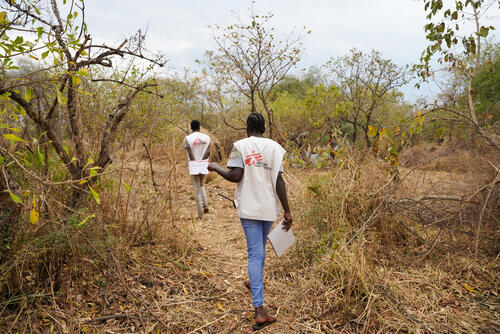Discover all our latest news, stories and publications. Use the filter to get to the content you're looking for.
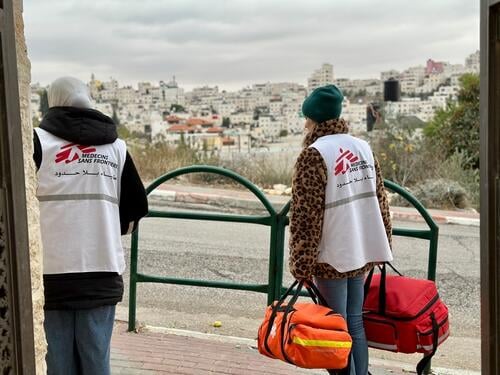
Access to healthcare is seriously compromised in H2 area of Hebron
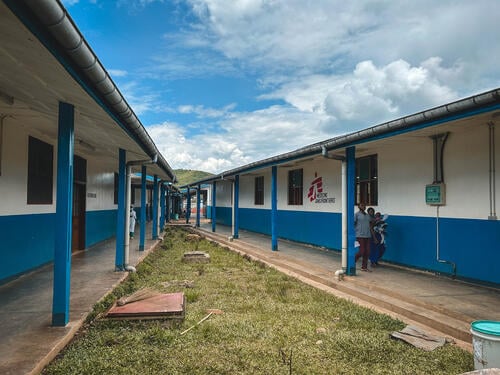
DRC: Nearly 160 wounded treated by MSF in North and South Kivu following recent armed clashes
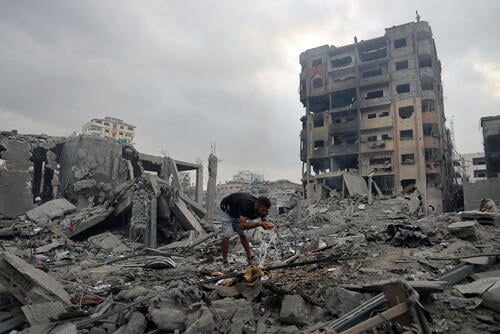
وسائل التواصل الاجتماعي
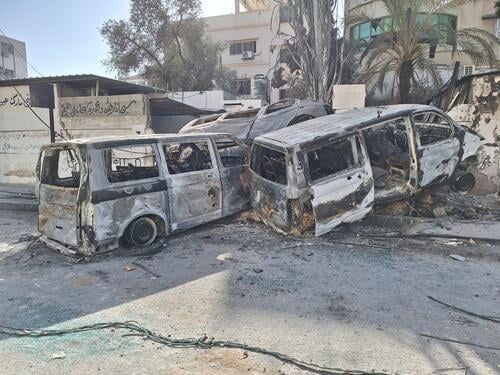
غاراتٌ ومداهمات وعمليات توغّل: أكثر من عام من الهجمات المتواصلة على الرعاية الصحية في فلسطين

Strikes, raids and incursions: Over a year of relentless attacks on healthcare in Palestine
الالتزامات السلوكية لمنظمة أطباء بلا حدود
تمت الموافقة عليها من قبل اللجنة التنفيذية الكاملة في يونيو/حزيران 2018
المقدمة
تعتبر منظمة أطباء بلا حدود نفسها جهة عمل وجمعية مسؤولة، ويعتمد هذا على السلوك المسؤول لأعضائها. هناك دور متبادل ومتكامل للموظف وصاحب العمل لمنع السلوك غير المقبول واكتشافه ومعالجته، ويجب على موظفي منظمة أطباء بلا حدود نشر الوسائل اللازمة لإعلام مرضاهم والأشخاص المستفيدين بشكل مباشر بالالتزامات السلوكية المذكورة أدناه.
يدرك جميع أعضاء فريق العمل في منظمة أطباء بلا حدود (الموظفون، بما في ذلك الموظفون الدوليون والمتطوعون والعمال اليوميون) والشركاء التشغيليون (بما في ذلك الاستشاريون والضيوف) الالتزامات الواردة أدناه ويلتزمون بها، ويدمجونها في سلوكهم المهني والشخصي. وإذا لم يكن الأمر كذلك، فإن منظمة أطباء بلا حدود توفر قنوات للإبلاغ على جميع مستويات المنظمة، وسوف يستتبع أي عدم امتثال العواقب الواجبة.
تعتبر هذه الالتزامات السلوكية بمثابة معيار سلوكي أدنى، وقد تنطبق قواعد أكثر تحديدًا على أعضاء طاقم عمل أطباء بلا حدود اعتمادًا على السياق الذي يعملون فيه ومجال نشاطهم.
الالتزامات السلوكية
- يجب على موظفي منظمة أطباء بلا حدود والشركاء التشغيليين التصرف باحترام وعدم التمييز بين المرضى أو الزملاء أو أفراد المجتمع المحلي على أساس العرق أو الآراء أو نمط الحياة أو الجنس أو التوجه الجنسي أو الخلفية الاجتماعية والاقتصادية أو الأصل أو الدين أو المعتقدات وغيرها من علامات الهوية.
- لا يجوز لموظفي منظمة أطباء بلا حدود والشركاء التشغيليين إساءة معاملة أي شخص جسديًا (أي العنف الجسدي أو الاعتداء الجنسي أو أشكال أخرى من الإساءة الجسدية) أو نفسيًا (مثل التنمر أو إساءة استخدام السلطة أو التحرش أو التمييز أو المحاباة).
- لا يجوز لأعضاء طاقم منظمة أطباء بلا حدود وشركائها التشغيليين، تحت أي ظرف من الظروف، قبول أي سلوك يستغل ضعف الآخرين، بأوسع معنى ممكن (الجنسي والاقتصادي والاجتماعي وما إلى ذلك). ويشمل ذلك تبادل السلع أو الفوائد أو الخدمات مقابل أفعال ذات طبيعة جنسية، بما في ذلك استخدام خدمات العاملين في مجال الجنس أثناء أدائهم لمهامهم.
- لا يجوز لموظفي منظمة أطباء بلا حدود والشركاء التشغيليين قبول إساءة معاملة الأطفال واستغلالهم والعنف ضدهم والانخراط في علاقات جنسية مع الأطفال1.
- لا يجوز لأعضاء فريق عمل أطباء بلا حدود والشركاء التشغيليين استغلال مناصبهم لتحقيق مكاسب شخصية. ويتعين على كل عضو استخدام موارد أطباء بلا حدود (بما في ذلك المباني والسلع والأموال والسمعة والصورة وما إلى ذلك) باحترام وعناية وبما يخدم مصالح المنظمة والمجتمعات التي تسعى إلى مساعدتها.
Article 1 of the United Nations Convention on the Rights of the Child, adopted and opened for signature, ratification and accession by General Assembly resolution 44/25 of 20 November 1989, entry into force 2 September 1990, in accordance with article 1: “For the purposes of the present Convention, a child means every human being below the age of eighteen years unless under the law applicable to the child, majority is attained earlier.
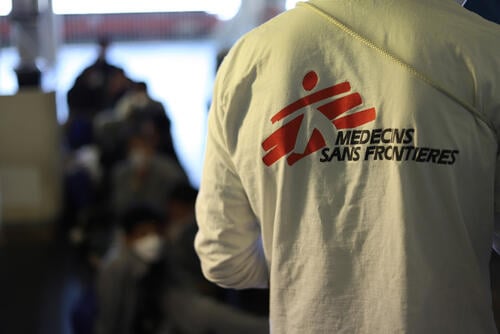
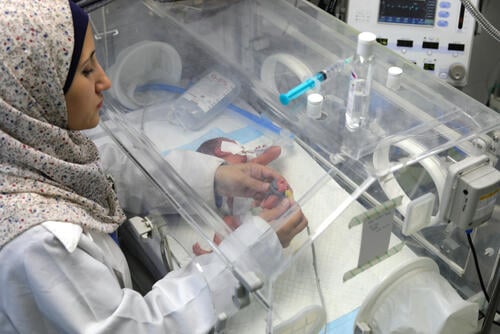
أطفال غزة يواجهون خطر المرض والموت مع حلول فصل الشتاء

Babies in Gaza at risk of disease and death as winter approaches
MSF Behavioural Commitments
Approved by the Full ExCom in June 2018
Preamble
MSF considers itself a responsible employer and association, and this rests on the responsible behaviour of its members. There is a mutual and complementary role of the employee and the employer to prevent, detect and address unacceptable behaviour and MSF staff should deploy the means to inform its patients and direct beneficiaries on the behavioural commitments stated below.
Within MSF, all members of staff (employees, including staff on international assignment, volunteers, daily workers) and operational partners (including consultants and guests) understand and adhere to the commitments below, incorporate them into their professional and personal conduct, and abide by them. Should this not be the case, MSF offers channels for reporting at every level of the organisation
and any non-compliance will entail due consequences.
These Behavioural Commitments are considered as a minimum behavioural standard; more specific rules may apply to MSF staff members depending on the context in which they work and their area of activity.
Behavioural Commitments
- MSF staff members and operational partners shall behave respectfully and not discriminate against patients, colleagues or members of the local community on the basis of their race, opinions, lifestyle, gender, sexual orientation, socio-economic background, origin, religion or beliefs and other markers of identity;
- MSF staff members and operational partners shall not abuse anyone physically (i.e. physical violence, sexual aggression or other forms of physical abuse) or psychologically (e.g. bullying, abuse of power, harassment, discrimination or favouritism);
- MSF staff members and operational partners shall not accept, under any circumstances, behaviour that exploits the vulnerability of others, in the broadest possible sense (sexual, economic, social, etc.). This includes exchange of goods, benefits or services for acts of a sexual nature, including the use of sex workers’ services while on assignment;
- MSF staff members and operational partners shall not accept child abuse, exploitation and violence and not engage in sexual relations with children1;
- MSF staff members and operational partners shall not take advantage of their position for personal gain. Each member shall use MSF resources (including premises, goods, money, reputation, image, etc.) with respect and care and in the interests of the organisation and the communities it seeks to assist.
Article 1 of the United Nations Convention on the Rights of the Child, adopted and opened for signature, ratification and accession by General Assembly resolution 44/25 of 20 November 1989, entry into force 2 September 1990, in accordance with article 1: “For the purposes of the present Convention, a child means every human being below the age of eighteen years unless under the law applicable to the child, majority is attained earlier.


ثلاثة أشياء يجب معرفتها حول ما يحدث في سوريا
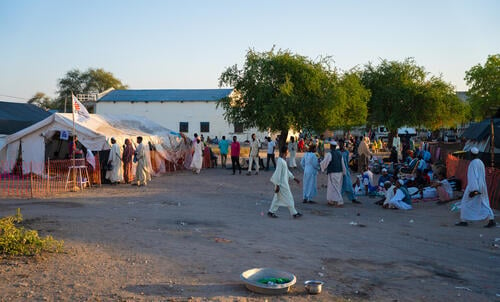
جنوب السودان يستقبل آلاف النازحين والجرحى الفارين من اشتداد الحرب في السودان
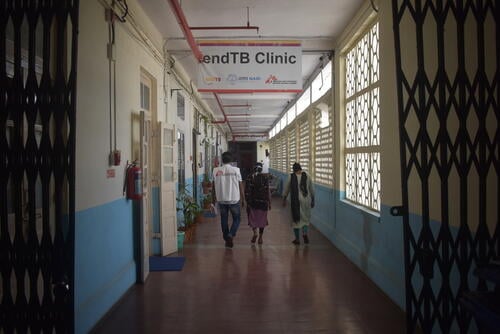
MSF hands over drug-resistant tuberculosis project in Mumbai after 18 years

أطباء بلا حدود تدين الهجوم العنيف من قوات الدعم السريع على مستشفى بشائر التعليمي في جنوب الخرطوم

MSF condemns RSF's violent attack on Bashair Teaching hospital in South Khartoum

South Sudan receives thousands of displaced and injured people fleeing intensified war in Sudan
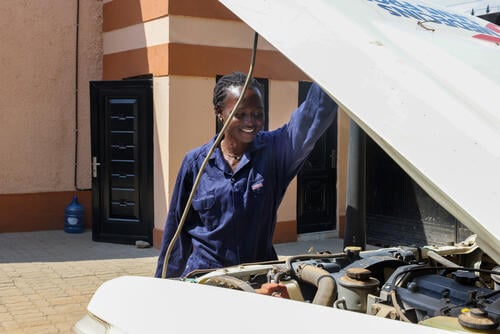
مدير الخدمات الميكانيكية
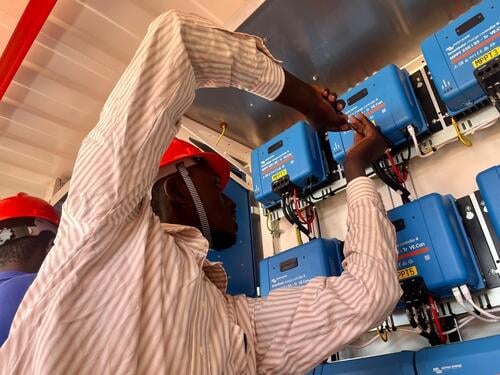
كهربائي

Gaza: Life in a death trap
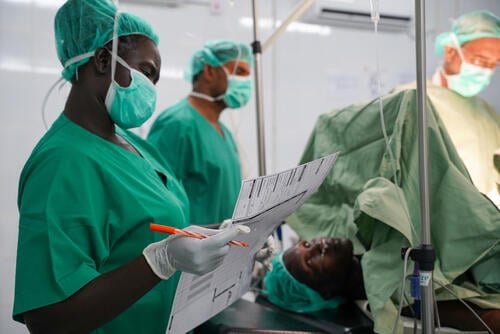
ممرض(ة) غرفة العمليات

مصيدة الموت في غزة: تقرير منظمة أطباء بلا حدود يكشف حملة الدمار الشامل التي تشنها إسرائيل

Gaza death trap: MSF report exposes Israel’s campaign of total destruction
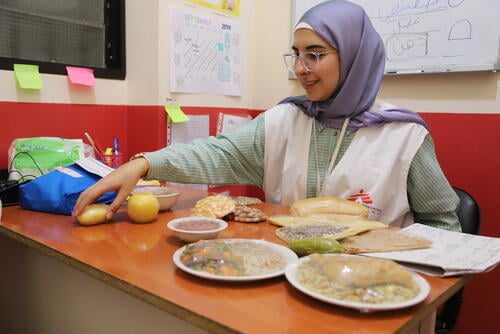
مدير دعم المرضى

Testimonies and statements from our social media on the Gaza-Israel war

How we deliver medical humanitarian assistance
Everywhere we work, the circumstances are unique. Nonetheless, our programmes generally follow a common set of practices designed to make sure our resources and expertise are used to maximum effect.




